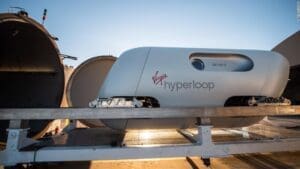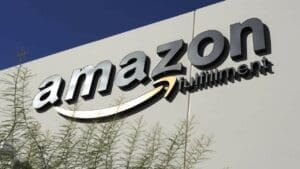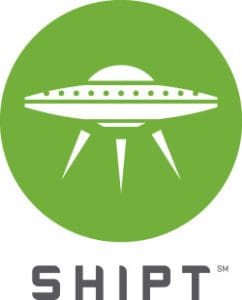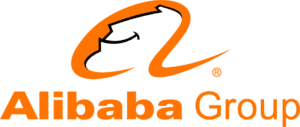 On Sunday, Richard Branson’s Virgin Hyperloop announced that it had completed the world’s first passenger ride on a super high-speed levitating pod system. For those not familiar with the hyperloop, I’ll explain. A hyperloop system uses magnetic levitation to allow near-silent travel at high speeds; it is the same technology used in high-speed bullet trains. Los Angeles-based Hyperloop envisions a future where floating pods packed with passengers and cargo hurtle through vacuum tubes at 600 miles an hour or faster. To put that speed in context, a trip between New York and Washington DC would take about 30 minutes, which is twice as fast as a commercial jet flight and four times faster than a high-speed train. The company has run over 400 tests without human passengers, so this past weekend’s test was a big step forward. For the human test, Virgin Hyperloop executives Josh Giegel and Sara Luchian reached speeds of up to 107 miles per hour at the company’s DevLoop test site in Las Vegas. The company is working toward safety certification by 2025 and commercial operations by 2030. And now on to this week’s logistics news.
On Sunday, Richard Branson’s Virgin Hyperloop announced that it had completed the world’s first passenger ride on a super high-speed levitating pod system. For those not familiar with the hyperloop, I’ll explain. A hyperloop system uses magnetic levitation to allow near-silent travel at high speeds; it is the same technology used in high-speed bullet trains. Los Angeles-based Hyperloop envisions a future where floating pods packed with passengers and cargo hurtle through vacuum tubes at 600 miles an hour or faster. To put that speed in context, a trip between New York and Washington DC would take about 30 minutes, which is twice as fast as a commercial jet flight and four times faster than a high-speed train. The company has run over 400 tests without human passengers, so this past weekend’s test was a big step forward. For the human test, Virgin Hyperloop executives Josh Giegel and Sara Luchian reached speeds of up to 107 miles per hour at the company’s DevLoop test site in Las Vegas. The company is working toward safety certification by 2025 and commercial operations by 2030. And now on to this week’s logistics news.
- Amazon in the news:
- Walmart and Cruise partner for autonomous grocery delivery
- Target-owned Shipt will give workers bonuses for Thanksgiving weekend work
- Descartes acquires ShipTrack
- Alibaba rakes in $75 billion in Singles Day sale
- EU imposes tariffs on $4bn of US goods in Boeing row
 Amazon is rolling out a new rewards program to give its Flex delivery drivers easier access to shifts. Amazon Flex uses independent contractors to deliver packages from an Amazon staging facility to customers’ homes. The deliveries are for both Amazon and Whole Foods. The biggest advantage of the new program is the “preferred scheduling” feature which gives frequent drivers access to hotly contested shifts and routes. Those drivers that sign up for the program and have higher levels of rewards, will have up to 30 minutes to accept a reserved shift rather than the norm of less than a minute. The rewards program is based around points which drivers earn based on the number of deliveries and shifts they complete. Additional points are provided based on metrics like completing deliveries on time. On top of access to shifts, the program also includes access to a cash back debit card, as well as discounts and financial services.
Amazon is rolling out a new rewards program to give its Flex delivery drivers easier access to shifts. Amazon Flex uses independent contractors to deliver packages from an Amazon staging facility to customers’ homes. The deliveries are for both Amazon and Whole Foods. The biggest advantage of the new program is the “preferred scheduling” feature which gives frequent drivers access to hotly contested shifts and routes. Those drivers that sign up for the program and have higher levels of rewards, will have up to 30 minutes to accept a reserved shift rather than the norm of less than a minute. The rewards program is based around points which drivers earn based on the number of deliveries and shifts they complete. Additional points are provided based on metrics like completing deliveries on time. On top of access to shifts, the program also includes access to a cash back debit card, as well as discounts and financial services.
The European Commission has been investigating Amazon’s position as both a marketplace for merchants and a rival seller for a while now. And earlier this week, The European Union hit Amazon with antitrust charges, alleging that the company uses its size, power, and data to gain an unfair advantage over smaller merchants that sell on its online platform. Specifically, the EU regulator looked into how Amazon collects data on its competitors that sell on its platform and uses the data to better target its own products. According to European Competition Commissioner Margrethe Vestager, “the use of these data allows Amazon to focus on the sale of the best-selling products and it marginalizes third-party sellers and caps their ability to grow.” Amazon disagreed with the assertions, noting that it accounts for less than 1 percent of the global retail market.
 Walmart is partnering with autonomous vehicle maker Cruise to pilot an autonomous grocery delivery service in Scottsdale, AZ. Under the pilot program, customers will be able to place an order from their local Walmart store and have it delivered via one of Cruise’s autonomous, electric Chevy Bolt cars. Similar to other tests, the vehicles will operate autonomously but will have a human safety operator behind the wheel. Cruise is no stranger to autonomous deliveries, having partnered with two food banks to make nearly 125,000 prepared meals since the coronavirus pandemic lockdown. The partnership with Walmart is scheduled to begin early 2021.
Walmart is partnering with autonomous vehicle maker Cruise to pilot an autonomous grocery delivery service in Scottsdale, AZ. Under the pilot program, customers will be able to place an order from their local Walmart store and have it delivered via one of Cruise’s autonomous, electric Chevy Bolt cars. Similar to other tests, the vehicles will operate autonomously but will have a human safety operator behind the wheel. Cruise is no stranger to autonomous deliveries, having partnered with two food banks to make nearly 125,000 prepared meals since the coronavirus pandemic lockdown. The partnership with Walmart is scheduled to begin early 2021.
 A couple of weeks ago I wrote about the steps that retailers and logistics companies are taking to prepare for the holiday rush. In that article I mentioned that Target-owned same-day delivery start-up Shipt would be very busy. The company is now disclosing how it is preparing for the season. The company announced this week that all of its more than 200,000 contract workers will be eligible for cash bonuses that range from $50 to $300 dependent on market and the number of shops completed between November 25 and 30. Shipt workers, who work as independent contractors, will be able to view the specific bonus available in their metro area as well as track their progress within the mobile app they use for orders. The company is also planning to add more than 100,000 additional workers to help during the holidays, which would triple its number of workers since the beginning of the year.
A couple of weeks ago I wrote about the steps that retailers and logistics companies are taking to prepare for the holiday rush. In that article I mentioned that Target-owned same-day delivery start-up Shipt would be very busy. The company is now disclosing how it is preparing for the season. The company announced this week that all of its more than 200,000 contract workers will be eligible for cash bonuses that range from $50 to $300 dependent on market and the number of shops completed between November 25 and 30. Shipt workers, who work as independent contractors, will be able to view the specific bonus available in their metro area as well as track their progress within the mobile app they use for orders. The company is also planning to add more than 100,000 additional workers to help during the holidays, which would triple its number of workers since the beginning of the year.
![]() Descartes Systems Group, a global leader in uniting logistics-intensive businesses in commerce, announced that it has acquired ShipTrack, a leading provider of ecommerce final-mile solutions. Headquartered in Canada, ShipTrack provides cloud-based mobile resource management and shipment tracking solutions. These solutions help customers automate dispatch, updates on shipment status and estimated time of arrival (ETA), and eliminate paper-based delivery processes. With the capacity crunch looming ahead of the holiday season, the timing of the acquisition certainly makes sense. Descartes acquired ShipTrack for approximately $19 million, plus potential performance-based consideration.
Descartes Systems Group, a global leader in uniting logistics-intensive businesses in commerce, announced that it has acquired ShipTrack, a leading provider of ecommerce final-mile solutions. Headquartered in Canada, ShipTrack provides cloud-based mobile resource management and shipment tracking solutions. These solutions help customers automate dispatch, updates on shipment status and estimated time of arrival (ETA), and eliminate paper-based delivery processes. With the capacity crunch looming ahead of the holiday season, the timing of the acquisition certainly makes sense. Descartes acquired ShipTrack for approximately $19 million, plus potential performance-based consideration.
 China’s annual Singles Day online shopping bonanza regularly hauls in tens of billions of dollars for Alibaba and other e-commerce and retail companies in China. The sales event is pegged as China’s anti-Valentine’s Day holiday to celebrate people that are not in relationships. Much like other single-single day sales events, this one broke records, largely in part to the ecommerce surge associated with the ongoing COVID-19 pandemic. Alibaba said that the annual sales frenzy broke records again, raking in roughly $75 billion; the total includes an earlier three-day period that was added to boost post-pandemic sales. Compared to the same timeframe as last year, this year’s haul represents an increase of 26 percent, the company said.
China’s annual Singles Day online shopping bonanza regularly hauls in tens of billions of dollars for Alibaba and other e-commerce and retail companies in China. The sales event is pegged as China’s anti-Valentine’s Day holiday to celebrate people that are not in relationships. Much like other single-single day sales events, this one broke records, largely in part to the ecommerce surge associated with the ongoing COVID-19 pandemic. Alibaba said that the annual sales frenzy broke records again, raking in roughly $75 billion; the total includes an earlier three-day period that was added to boost post-pandemic sales. Compared to the same timeframe as last year, this year’s haul represents an increase of 26 percent, the company said.
The European Union is moving forward with a plan to hit $4 billion of American goods with tariffs as punishment for US subsidies for Boeing. The taxes, authorized by the World Trade Organization last month, affect items such as tractors, ketchup, and orange juice. The EU said it still hoped to settle the fight, which saw the US impose tariffs on European products last year. EU Trade Commissioner Valdis Dombrovskis said the EU wanted to see both sides remove their respective tariffs, which are a result of a long-running feud over state support provided to plane-maker Boeing and European rival Airbus. US Trade Representative Robert Lighthizer, who has served as America’s top trade official under Donald Trump, said the US was “disappointed” by the move. A trade official said Joe Biden’s election could help “reboot” talks.
That’s all for this week. Enjoy the weekend and the song of the week, Supersonic Rocket Ship by the Kinks.

















